by Brian Hioe
語言:
English
Photo courtesy of the filmmakers
New Bloom editor Brian Hioe spoke with the interviewees who appear in the documentary on the ongoing human rights crisis in Xinjiang, All Static & Noise. The following interviews were conducted in September and October 2023.
Brian Hioe: Could you introduce yourself for those that don’t know you?
Nurak: People call me Nurak for short. I am living in Norway right now. I was seeking asylum in Norway in September 2021. My role in the film is that I was translating, transcribing, and providing timeline corrections. I did part of the translation of the film. Now I’m currently living in Norway. My asylum was approved in 2022. Now, I’m just studying Norwegian.
BH: How did you become involved in the film?
N: In 2022, around May, Janice, David, and Abduweli came to the asylum reception center. I’d been waiting for my asylum case to be approved. They interviewed a couple of people and I was one of them. They thought my English was decent so asked me if I was willing to help the film. I said yes, and that’s how I became involved in the film for translation work. That’s how my journey started.
BH: For yourself, as a Uyghur person, what stood out about the film? What made it interesting or special?
N: The things happening to Uyghur people are well-known in media. What is different is that media frames it in terms of human rights violations or abuses, but the details of that are not gotten into. The full story of what is going on is not mentioned. The film tells more details about what occurs and the situation. It provides more detailed information than the media. I think it shows the true nature of what’s happening to Uyghurs.
For me, what’s interesting is that it highlights the situation of Uyghurs. It’s not just numbers and statistics, it shows stories, and how it’s such a massive thing, involving people in so many places.
If you look at the news, it will say that it’s a human rights violation, or abuse. That millions of people are in the concentration camp. They never take individual stories from what’s going on to Uyghurs. The film itself takes individual stories and tells what happened to every individual person. If you multiply this story by millions, it’s a very horrible thing. You can more easily feel how heavy the situation is.
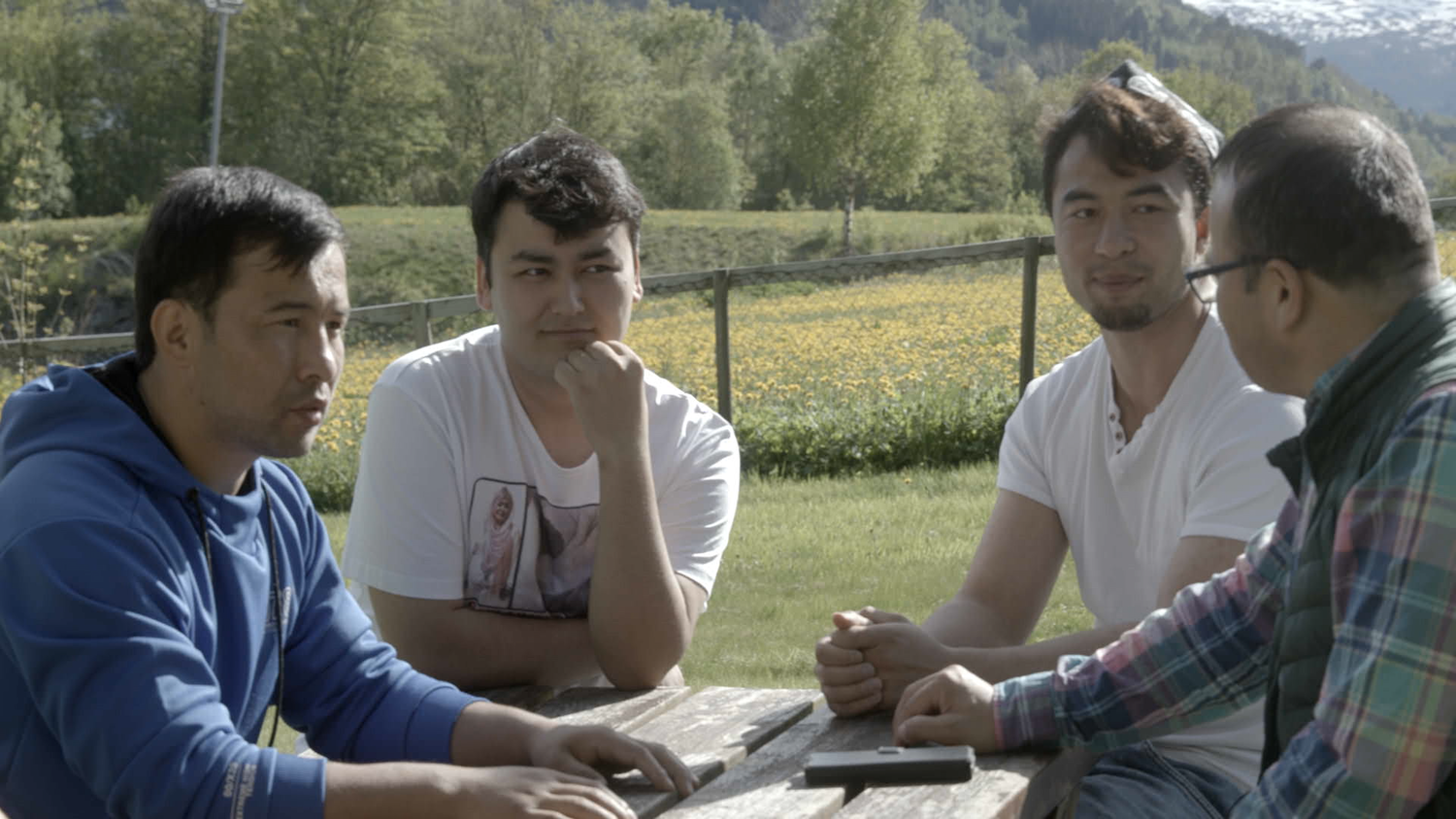 Photo courtesy of the filmmakers
Photo courtesy of the filmmakers
BH: The enormity of it. In that sense, what do you hope that viewers can take away from the film?
If you look at the film itself, it can be viewed by everybody. You don’t have to see the news or understand the situation, it’s a documentary that tells what is happening. So it’s not only politicians or human rights activists, people living their lives, when they watch the film, can understand the situation more. They can feel what we are feeling right now. I think it’s good for normal people living their lives to understand what is happening to Uyghurs.
BH: Many people in the film are also everyday people.
N: The film itself is for everybody, so it’s not only politicians or human rights activists. Normal people living in a society can also feel what’s going on with Uyghurs.
BH: What did you make of the filmmakers’ take on the crisis?
N: With David, we did the first overview of the film after the translation was done, to see if there were any translation errors. While we were looking it over, we chatted a bit, and I asked David why he wanted to make this movie. His response was that, “No matter where, there is a fight going on between good and evil. Sometimes evil wins, sometimes good wins, but the point is that you cannot give up this fight, and this fight must be continued.” These words affected me the most.
BH: Is there anything you would like to say in closing?
N: It’s a very good film, it’s a great film, and it will truly explain what is occurring to Uyghurs in a more detailed way. I encourage people to give a chance to the film and to watch it, to feel what is happening to Uyghurs.
BH: Could you first introduce yourself for those that don’t know you?
Abduweli Ayup: I’m Abduweli Ayup. I’m a writer and linguistic rights activist. I’m running an organization called Uyghur Hjelp, documenting the Uyghur crisis and advocating for rights.
BH: You’re involved in linguistic preservation efforts.
AA: We’ve done this in China. And because of that, I was imprisoned for fifteen months. Then I started in Turkey and I’m also doing the same thing in Norway.
BH: How did you become involved in the film?
AA: The film documented every aspect of the genocide. For example, there are different gender perspectives. There were interviews of intellectuals to housewives. It includes Uyghurs who are activists, also Uyghurs who are at the bottom of society. People of different social classes and people of different backgrounds and their experiences are all included.
It is a documentation of the Uyghur genocide and tells the true story of Uyghurs. Not only the story of the Uyghur plight, but the story of Uyghur of culture and language preservation. Jewher and my role matched very well. From my advocacy, one can understand how the Uyghur language has been persecuted and how Uyghur linguistic activists struggle, but how we are working to keep this language alive. From Jewher’s story, people can learn how Uyghur intellectuals and Uyghur rights activists are persecuted, and how political activists can advocate through different international platforms. The story includes Uyghur culture, such as music and clothes, and it documents the camps themselves and prisons. They interviewed those who had survived prisons and camps. So it is a complete story of the Uyghur genocide from different perspectives.
Genocide is happening, but people are telling their stories, and sharing their stories with the world and diaspora. And fighting to keep their identity and language alive.
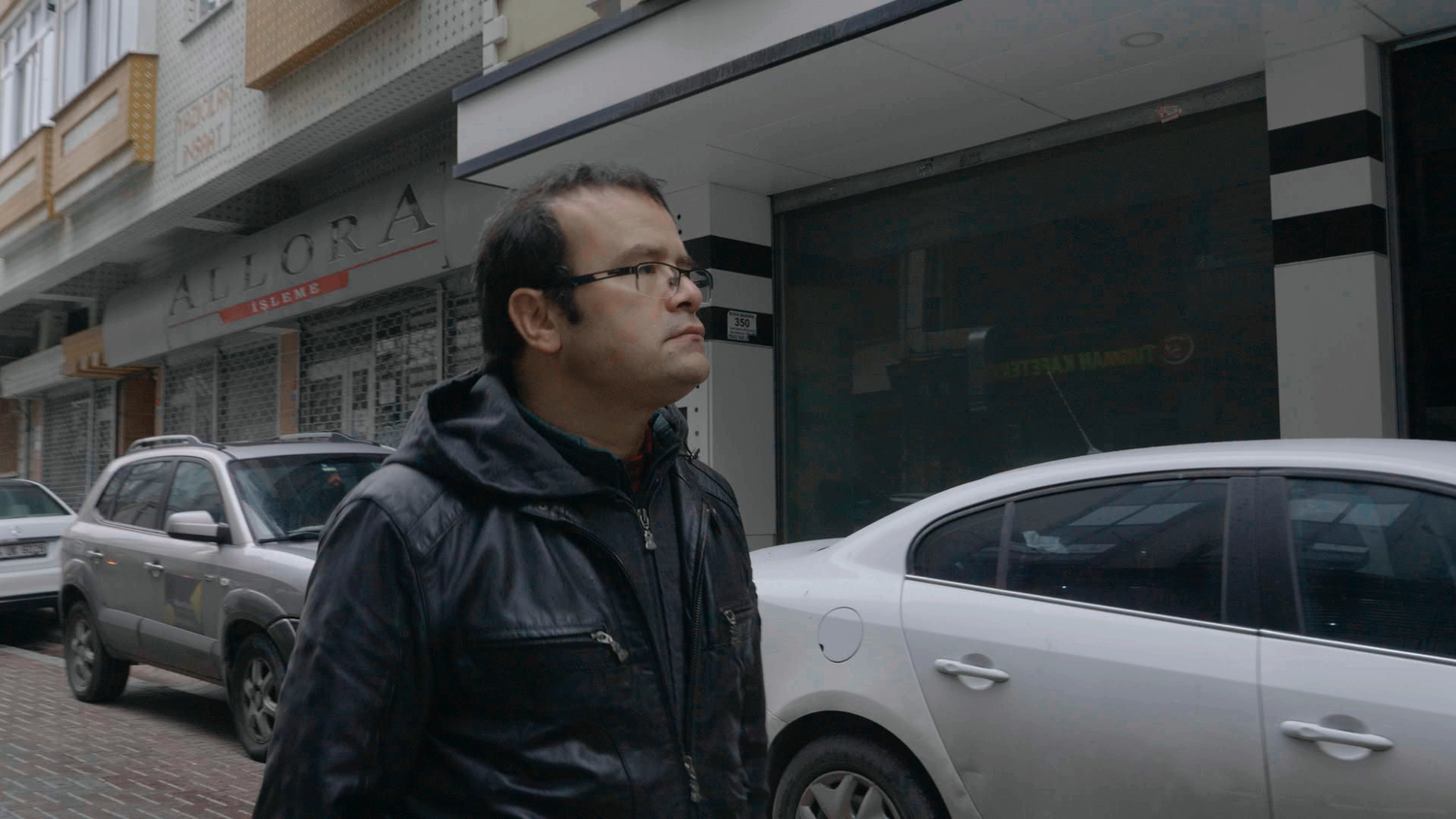 Photo courtesy of the filmmakers
Photo courtesy of the filmmakers
BH: It’s a story of resistance in that sense.
AA: It is a story of resistance against Chinese imperialism and Chinese colonial power.
BH: I talked to Nurak and he brought up how it puts a very human perspective on things. It tells people’s stories and they aren’t just statistics. I found that very powerful about the film.
AA: It is. Some people are just interviewed once. There is a lady, her name is Leila. She just appears once in our story, but she didn’t dare to talk to other media again, because her father was sentenced in China. But at that time, she agreed to talk to us.
Her story is very heartbreaking and it happened in 2016. We knew that the world became aware of what was happening in 2018. The mass arrests started in 2017. But she told us that the mass arrests already started in 2016 and she was one of the witnesses. So we learned something new that we hadn’t thought about.
But, overall, it is from a humanistic perspective. Jewher asked the one next to her, “How do you pronounce his name?” Quite innocently. It’s good.
BH: Could you talk a bit about how you and Jewher’s roles in the film are complementary? In showing different ways that resistance takes place, for example.
AA: She started her campaign in May 2014. She talked to the United Nations (UN) and she testified in front of Congress and in the European Parliament. That’s the important part, to stop this genocide. And for the people living in the diaspora, growing up in the diaspora.
At the same time, we need to protect our language and preserve our culture in the diaspora. So I mainly focus on documenting the plight of Uyghurs and introducing the topic to the media, while encouraging people to keep their language and open mother language schools and provide classes around the world. While writing books for kids and organizing summer schools for kids. Things like that.
I’m also her father’s friend. I know she was two years old when I saw her in Beijing. She grew up and I was there. It’s amazing to see her as a strong woman, who is a very energetic activist.
BH: And that’s how David and Janice came to know you, because you were connecting people with the media?
AA: Because I had my activism in China, I knew a lot of people. I went to different cities in our homeland. In those three years, I stayed in Urumqi and Kashgar. My luggage was always prepared. I didn’t need to prepare my luggage all the time. It was perpetually in front of my bedroom.
I always visited those Uyghur cities, talked to the people, and gave lectures to different schools. I even went to small villages when the teachers invited me to give a lecture. Because of that, I knew a lot of people, and due to that, people sent me videos and e-mails, as well as documents. It’s my job to classify those documents and translate them into English, to provide them to the media. So I did that in Turkey for nearly three years. I kept at the same job, being a middleman between international media and Uyghurs.
BH: As a Uyghur person, what stood out about the film? What did you find to be unique or powerful about the film and what did you hope it could do?
AA: The powerful part is how it shows the women who have become separated from their families and lost their kids. Mihrigul Tursun lost her kid. For me, that’s very powerful. Because as an activist and poet, as an adult, I knew what would happen. You know what you do and you should be prepared as to what the consequences are.
But kids are innocent. They shouldn’t be punished. They shouldn’t be the victims of this. We are adults and we are living in an adult’s world. Those kids are innocent. Those kids have the right to live in their own world. Unfortunately, no. Those kids suffer. Those women and traditional housewives also knew nothing about that and they were just arrested. Like Chimengul Abduqadir was arrested because she just went back to see her parents and take care of her kids. That’s really sad.
The hopeful part is she recovered. She’s living with her two kids in the United States. And Jewher is advocating. And I’m teaching my language to kids and writing books for Uyghur kids.
The problem is the genocide is ongoing and those kids who are in China are suffering in their boarding schools.
I read that on September 30th, one of the Finnish leaders apologized for the Inuits–that their kids were forcibly assimilated in boarding schools. I hope that this documentary will remind those people who have done such things, such as the Norwegian authorities, who should apologize to the Sami people whose kids were forcibly assimilated in boarding schools. And Canada, as well as America, New Zealand, and Australia. The world should apologize to those who lost their identities and lost their childhood in those boarding schools.
People promised, “Never again”, after 1948. The charter of the UN–the Universal Declaration of Human Rights–states this. But the genocide still takes place. And human rights are violated in China. But there is no unanimous action from the UN.
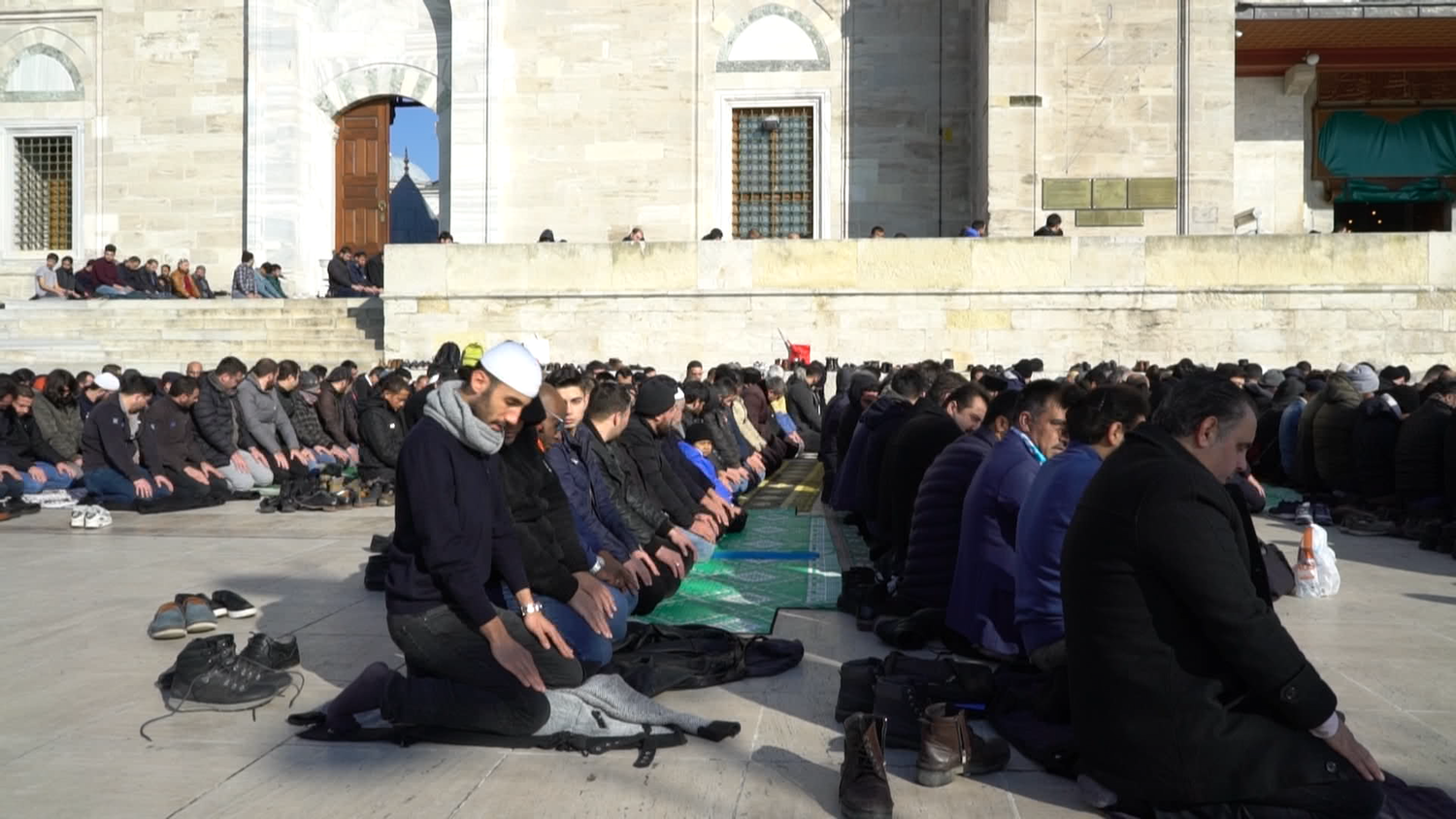 Photo courtesy of the filmmakers
Photo courtesy of the filmmakers
When you apply for membership, you say that you will recognize the Universal Declaration of Human Rights. But even as the UN published a report last year, there was no resolution. There was no discussion about the resolution in the UN. So I hope that this film will remind those people in the UN to recognize this genocide, to take action, and come together to discuss a resolution.
We have war in different parts of the world. In Ukraine, in Sudan, in Nigeria. We have seen what’s happening. With the war in China against Uyghurs, there is no smoke and no blood you can see. But what we can see if that the kids are losing their identity. The parents are suffering in the camps. The people are living in fear in and outside of the camps. So I think that through this documentary, we will tell the world that the genocide should be stopped. Fulfill the promise that there should be “Never again” to what happened to Jewish people from 1939 to 1945.
BH: Is there anything you’d like to say in closing?
AA: We don’t want to tell the world that we are weak. That we are miserable.
We are hopeful. We are strong. But we are sacrificing for the future of the world. With AI technology and communication technology, we hope it will unite the world. That supply chains will do this.
Yes, it did. Because of those technologies and supply chains, under the authoritarian regime of China, the Uyghur people are suffering.
Our pain will show the world that we will be under this AI prison in the future. What’s happening there, it’s high-tech AI technology that are putting people into a world characterized by surveillance. Hundreds, thousands of computers are calculating what you are doing and what you are talking about. What are you buying. How much money you have. This is the world we are living in, that international companies and authoritarian regimes learn from us, and they know what we are doing. Google will know what I like and what I have done.
China does this through social media apps such as TikTok and WeChat. It is dangerous for every one of us. In the Uyghur homeland, up to three million people were not arrested due to the police. They were arrested because of those tools–social media and AI technology.
We are telling the world not just our stories, but the story of the victim. And you’ll be the next victim, if AI technology is controlled by authoritarian regimes. You cannot hide your bank account. You cannot hide your conversation with someone. You cannot hide everything. So I don’t ask the world to take action because of Uyghurs. I ask the world to take action because your self, your safety, your privacy.
BH: Could you first introduce yourself for those that do not know you?
Jewher Ilham: My name is Jewher Ilham. I am Uyghur. I work as a forced labor project coordinator at the Workers Rights Consortium. It’s a labor rights monitoring non-profit organization based in Washington DC.
I’ve been advocating for Uyghurs since 2019. And advocating for the release of Uyghurs that have been wrongfully detained.
One of the many Uyghurs I’ve been advocating for is my father, Ilham Tohti. He is a Uyghur economist who was sentenced to life in prison in 2014. Besides his role as an academic, he was a blogger who published articles and provided a platform for people to communicate, That led to attention from the Chinese government. As a result of which, he was sentenced to life.
So for the past decade, I’ve been trying to advocate for the release of my father. Since 2019, I’ve been involved in the documentary film, All Static and Noise–to document what happened to my family, to my father, and to the Uyghur people.
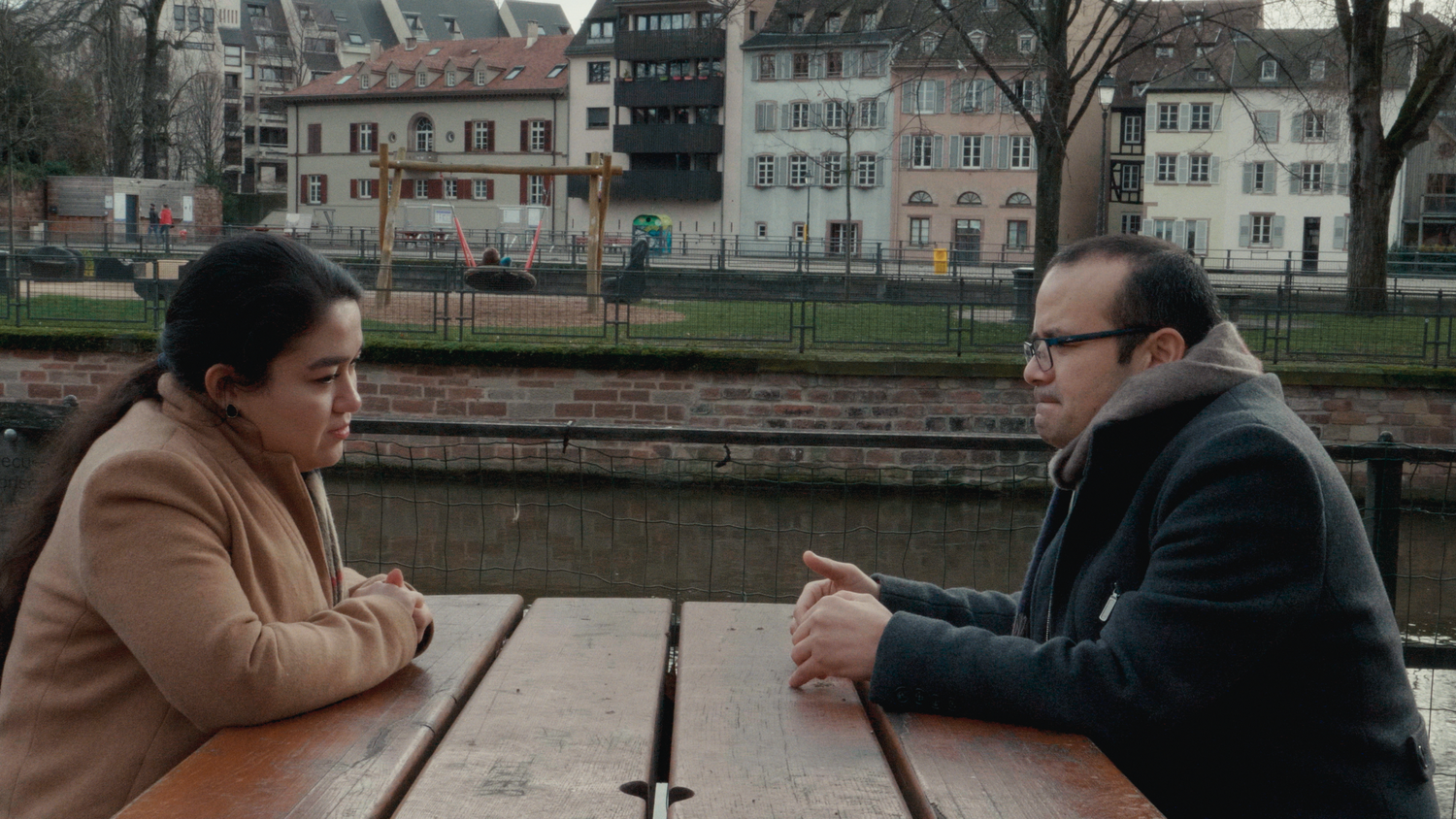 Photo courtesy of the filmmakers
Photo courtesy of the filmmakers
BH: How did you come to become involved in the film?
JI: It was through a mutual friend. A friend reached out and said a group of filmmakers was interested including me as one of the storylines in the documentary. Originally, the documentary wasn’t solely going to be about Uyghurs. It was going to be about human rights violations in China in general.
But even though the persecution of the Uyghurs started many, many years ago, the outside world only started getting evidence and learning more about the camps, as well as forced labor and surveillance, around late 2018. That was when our producer and director decided to do one segment on the Uyghurs.
Later on, the situation just got worse and worse. And so the whole film is about Uyghurs now.
When I was first involved in the film, I was still in college in Vienna. So the film crew would fly to Vienna to film me. My graduation and other events. Many clips didn’t get included in the final version of the film, because we have so much wonderful footage that we didn’t get to use. Hopefully in the future, if there is the opportunity, we could do more or be able to show the world the rest of the footage that didn’t get to make it to the final cut.
It’s a privilege to get to meet our producer and director, both of which are really decent human beings, and very passionate about what they do. Many people sacrificed their time, not only with their daytime jobs, but time with their family, with regards to their safety, and who contributed financially. We’re all trying to do everything we can to get this film out.
It hasn’t been an easy process, it’s taken years to get this film to the current state. Things develop so fast, so quickly. There were many times when we started doing the final edits, we realized that there is some specific, very important incident or issue that had to be part of this.
So it took us a long time, but I think it’s worth it. And I’m beyond grateful for all those who were involved. Many have been involved and contributed their time and efforts anonymously for their safety and that of their families.
BH: How do you see the film as dovetailing with your existing advocacy? Because you were already involved in advocacy before the film and the film later became part of it, in that sense.
JT: There are not as many films out there on this matter at the moment. We thought it was really important–there’s only so little I could do, though I contributed my entire past ten years to human rights advocacy. But there’s only one Jewher and I can’t be at multiple places at the same time. I do travel all the time, I do talk to different audiences, whether it’s college or high school kids, the European parliament, or the US government–I try to expand my audience and my outreach as much as possible.
But when people just hear words or read news, it’s not the same as when they get to it visually. People need to have the opportunity to have access to NOT just some numbers or things that are printed in newspapers, but to match those words and numbers to faces. To sound. To visuals. They need to be able to do that for them. I think it’s the best way to trigger these little cells in human bodies to make them want to do something about it.
When they just read it, they can easily get distracted by the next article or next topic. Because we live in this world where there are so many unfortunate things happening in different corners of the world, that are all equally important. And we are living in this world where information has become so cheap and so easy to have access to, where people don’t value the information they have access to anymore–that people are numbed by all these little words, and this information that is delivered to them. It’s hard to get people to stand up and do things.
But when people see it face-to-face, or if not face-to-face, at least visually, then they realize there are real human beings. Not just some fictive characters that are written in a booklet or in an article, that they’re true. When things are printed in an article or in the news, they often think it’s so far from them.
Just a video clip or a film can make people feel related to the people they see–those people just walking, behaving, living, and surviving, just like everyone else. At the same time, they have so many rights taken away from them that every deserves. Those people, like the Uyghurs who don’t have the right to simply pick up a phone to call their family members, or just to walk by their family members, they don’t have that right anymore.
If you see some of the footage we have, you see Uyghurs sitting next to each other. But each of them is grieving for a lost family member. Or they are fighting for the chance to be with their family members again. It should be a normal thing to be with our family members–people don’t cherish it enough. Hopefully, when people see the film, they can be more compassionate or empathetic about those rights and moments that people take for granted and think of as so significant but are, in fact, the most significant moments in our lives.
BH: It puts a story behind each individual, which is often lacking in news coverage and so forth, and with these media interviews, it’s often all the same questions. But, by contrast, so much of your life went into this film–would you say that?
JT: Yeah. At 2 AM, people involved in the film would be discussing who to interview. And even the selection of who, in the end, needs to be in the film was a very difficult choice for our director, producer, and editor, I’m sure it was so hard for them to pick, since the film crew spent so much time, money, effort, and resources to film everything. But you can’t make a 300-hour film.
I’m sure it took a mental toll on everyone involved to just get the film out. And it’s part of our lives now. Every day, when I’m doing my labor rights work, even though I go out as a forced labor project coordinator in an event, I’ll try to involve the film in what that event is. Even if it’s not an event focused on documentary film. I’ll try to shed a light on this. It deserves a shout-out, not only because the film is really great, but for those that risked their lives for the film to come out.
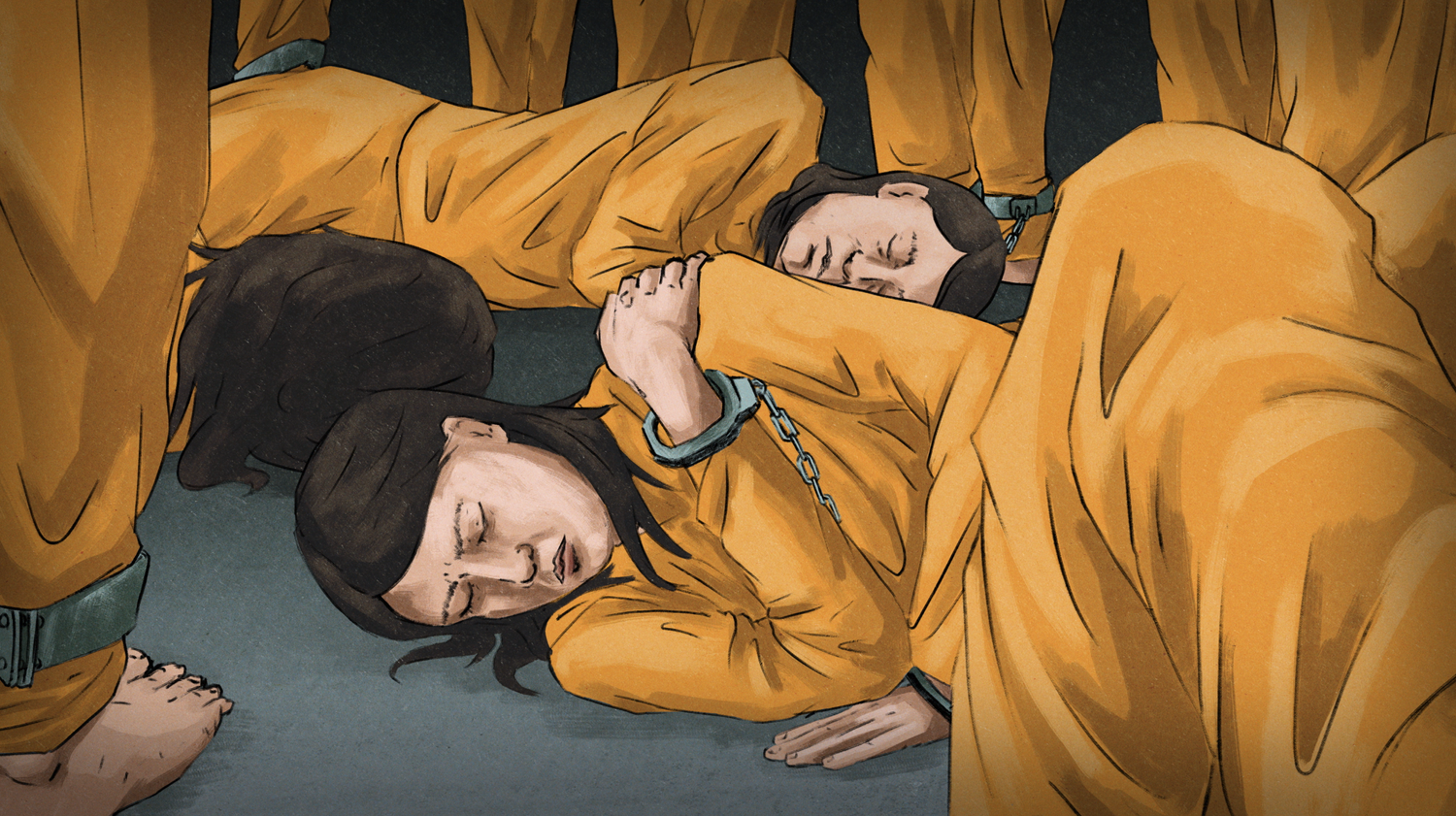 Photo courtesy of the filmmakers
Photo courtesy of the filmmakers
BH: I’m curious how you see your role in the film. Abduweli said that he felt your role and his role are complementary since he’s your father’s student and he’s older. That he’s involved in linguistic and cultural preservation work and you’re involved in advocacy. David and Janice echoed those comments when we spoke. Could you elaborate a bit on that?
JT: Janice would react to this strongly, since I would tell her, “I feel you put too much Jewher in the film. I don’t think you should focus so much on me.” That’s always been what I’ve been telling her. I would rather cut my part, to give it to more camp survivors, or family members of a current camp detainee. I would rather contribute that time for us to be able to get more footage of other storylines.
I do think Abduweli and I have a pretty complementary role in the film. I agree. Because of our relationship with my father. He has also been working on a book about my father. Both of us, we have a great respect for and admire my father very much. That’s why we’ve been dedicating our lives to shed light on his work and his ideology, as well as his life story.
We want to be able to inspire more people like we both have been, even if we may use different tools or methods, but our goal is the same–to inspire more people, for them to learn about his vision, so they will want to do more work for Uyghur rights.
Though I still stand by my own opinion, I would rather cut my part to include more stories. It pains me many times. I wish we could include 300 stories in this film. I don’t know if you’ve seen the film?
BH: Oh yeah, I have.
JT: I strongly suggested to David and Janice to cut out my dance part. [Laughs] Dancing plays a huge role in my life. I’d always imagined myself becoming an artist and professional dancer, I’ve loved dancing since I was four years old. But now I’m doing something totally unrelated. And they thought it was important to include that, that it was part of my journey.
But I told them that if we cut, we can cut those parts, so we can include more testimony. Just I understand where Janice and David are coming from, that they have their own vision for this film. I respect that.
BH; In that sense, as a Uyghur person, what stood out about the film for you? What you think it gets at about the crisis?
JT: As I mentioned, I think it’s important to have a visualized version of the story, since we have had so many articles about this, but we haven’t had a full-length documentary that even has footage from back home. This is pretty unprecedented until now. We needed the representation.
We needed the story to be told by Uyghurs themselves in the Uyghur language, with Uyghur faces. I think it’s absolutely necessary for that to happen. We’ve had people showing interest in being part of the film who are not Uyghurs, who can contribute in huge ways differently, but we thought that it was important to have Uyghurs and Kazakhs telling the story. To share their advocacy work, their fight, their tears, their time, and their lives. It should be about them and for them.
I very much agreed with that and I very much appreciated David and Janice for sticking with that though we could have had a lot easier production process, if we had other methods involved.
I very much appreciated us sticking through with the plan to have Uyghurs tell the story. It warms my heart, because we needed that. And it’s not only that one story, but as with my father’s story that connects to all these pieces.
Everyone’s interconnected in some way. That shows part of Uyghur culture and society. It’s like a spider’s web. We’re all connected in some way, from far away. The Chinese government has forced us to be connected even tighter–in a more tragic way. And this film has demonstrated that.
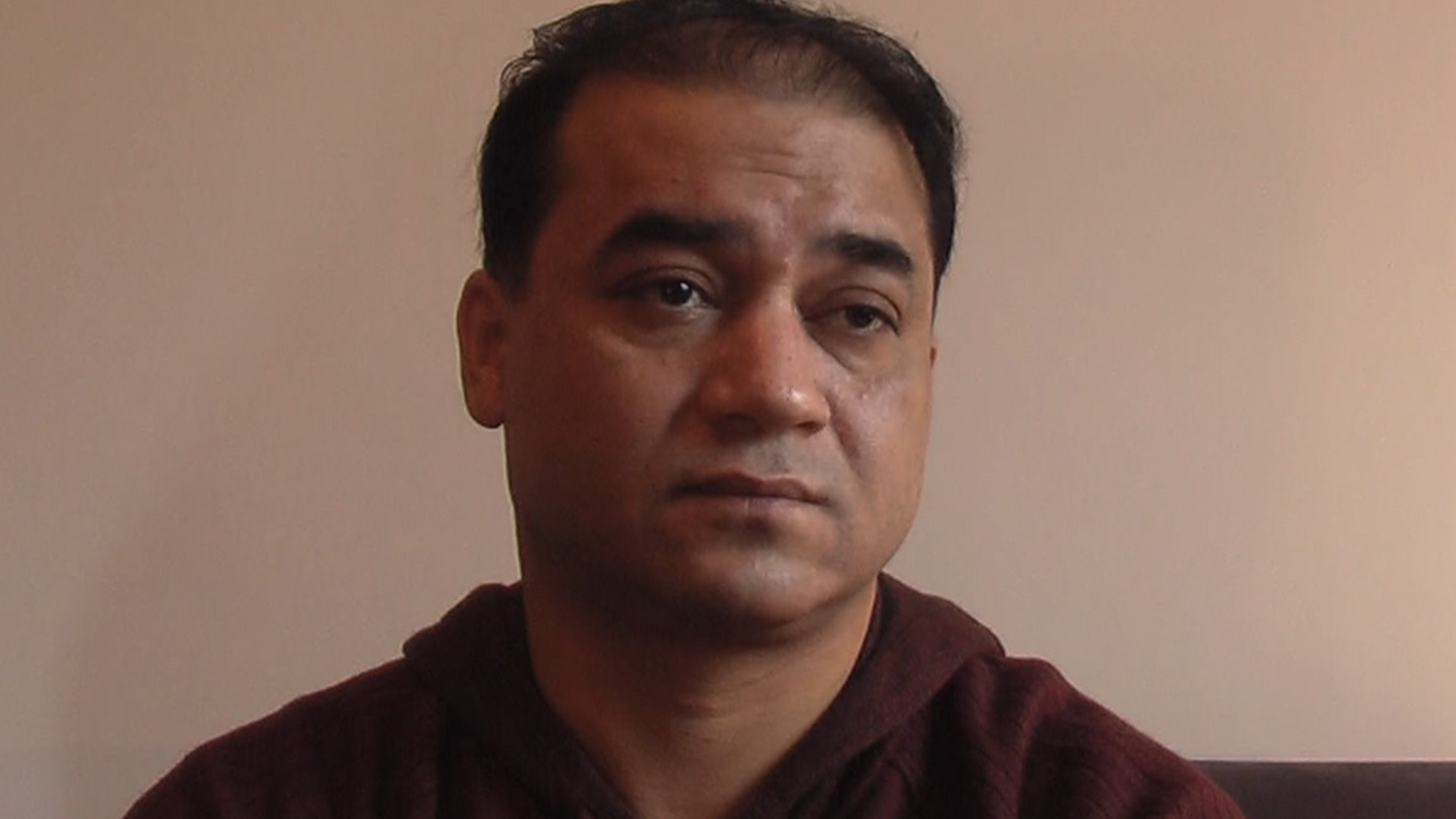 Photo courtesy of the filmmakers
Photo courtesy of the filmmakers
BH: What do you hope that viewers take away from the film? You mentioned the stories. For me, at least watching it, it’s important that it’s not only the stories of suffering, but the stories of resistance.
JT: Exactly. That’s why Janice and David really wanted to include my dance as well. From drinking tea or people just walking on the streets, traveling from one city to another city. The cooking. Or picking up kids from school. Those kinds of small moments, just like everyone else, we have our dreams and hopes. We all have our lives, just like everyone else. But we have embedded the advocacy, the fight, into our lives. This film demonstrates that.
With the Uyghur dance, that demonstrates the culture of Uyghurs. But David and Janice included non-Uyghur dance as well, since they wanted to show the lives that people started having after leaving their hometowns–what kind of transitions they have experienced.
From only traditional dance, to hip hop and modern dance. Or people back home just living in the village, having their kids just walk back home, to now having to go to the school bus to pick up their kids and make sure they’re safe. To demonstrate the changes in what people do away from their homes to survive. To try and keep their families alive–the struggle that they have–and show the transitions they’ve had in their lives.

